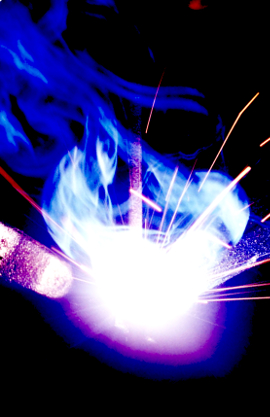Advanced weld brings award of cheaper planes
 Local innovations have changed the state of aircraft construction worldwide.
Local innovations have changed the state of aircraft construction worldwide.
An Australian technique for welding composite materials is creating new possibilities for aerospace engineers, by cutting aircraft construction time and cost.
University of Queensland PhD student Luigi Vandi has worked on a new process that allows carbon-epoxy composite materials to be welded by incorporating a thin layer of weldable material during the manufacturing process.
Large proportions of modern aircraft are made form composite materials, but unlike metals, carbon-epoxy materials normally could not be welded.
“This new process can significantly reduce the assembly time for aircraft made from composite materials – and consequently the cost,” Mr Vandi said.
“Using this process, welding composite materials takes only 15 minutes, compared to a typical two-hour process for conventional adhesive bonding methods.”
The research involved unravelling the molecular mechanisms at the interface between the composite and the weldable material.
Understanding the molecular process ensured the technology could be safely implemented in aircraft engineering and construction.
The new welding technique could have the potential to save billions of dollars in coming decades for airline manufacturers, which would then make new aircraft cheaper to buy and reduce air travel costs for passengers.
Due to his breakthrough work on the new composite-welding process, Mr Vandi won the annual ‘Early Career Researchers’ showcase prize at the CRC Association Annual Conference ‘Innovating with Asia 2014’ in Perth this month.








 Print
Print